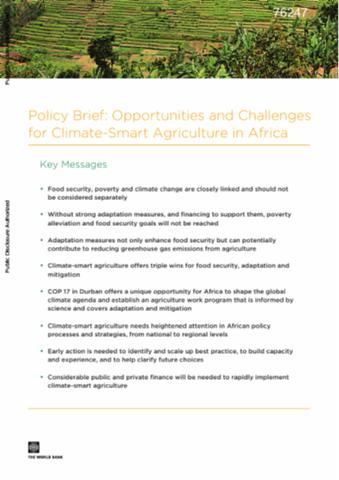Policy Brief
Agriculture is the economic foundation of many Sub-Saharan Africa (SSA) countries, employing about 60 percent of the workforce and contributing an average of 30 percent of gross domestic product. Yet agricultural growth rates for SSA declined in the 2000 and food insecurity remains a concern, with malnourishment only dropping from 34 to 30 percent in two decades. Various projections suggest that food production must increase by 70-100 percent by 2050 to meet the demands of a world with 9 billion people and changing diets.








